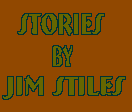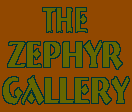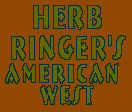

GOLDEN MEMORIES on GLEN MEADE ROAD
Oft in the stilly night,
Ere Slumber’s chain has bound me,
Fond Memory brings the light
Of other days around me:
The smiles, the years
Of boyhood’s years,
The words of love then spoken:
The eyes that shone,
Now dimmed and gone,
The cheerful hearts now broken.
Thomas Moore
How would any of us survive if it weren’t for the soft and muted golden glow that the passage of time blesses us with? I doubt if my childhood was nearly as idyllic as I now remember it, and in fact, I can still dredge up enough bad memories to give me pause right now, that my dreamy recollections don’t quite fit with Reality.
But then I remember the conversation between Elwood P. Dowd, best friend to a six and a half foot tall invisible rabbit named Harvey (a pooka) and the celebrated psychiatrist.
The good doctor said, "Mr. Dowd, isn’t time you faced Reality?"
Elwood thought a moment and replied, "Doctor, I’ve been fighting Reality for 35 years and I’m happy to say I finally won out over it.."
Maybe that’s the best kind of memory...the kind we want to have.
But I do know this. I know that despite the eternal ordeal of childhood and the conflicts we all face at an early age with family and friends and strangers alike, we did have more time then to be kids. We may have been the last generation of children given the chance to create our own childhoods. In another ramble a few months ago, I recall sharing a new ailment now consuming America’s youth. Doctors call it "nature deficit disorder," and there’s scarcely a child growing up in Urban America today who isn’t afflicted by this disconnection between kids and the natural world.
I am so grateful I was spared this "sickness," grateful that it hadn’t been invented yet. There were times when my frequent bouts with poison ivy and chigger bites, contracted out there doing intimate duty with the "natural world," were so miserable, I might have welcomed the tradeoff. In the end, though, years after the blisters heeled and the swelling went down, I wouldn’t have wanted to miss a single itch.
The American Suburb was just beginning to dominate the landscape when my family moved from a small downtown apartment to one of the first subdivisions to take root in east Louisville, Kentucky, almost half a century ago. Glen Meade Road was a solitary finger of small two-bedroom brick homes in an area that had been farm land for almost two centuries. We were surrounded by dense woods and wheat fields and bottomless swamps and a pumpkin patch. A dirt road ran behind Glen Meade, on the edge of Old Lady Huntsinger’s field and my brother and I often waved to the hobos who made their way along the two-track path from Six Mile Lane and the Southern Railroad tracks, to the L & N Railway in Crescent Hill. In those days, talking to tramps didn’t seem like a hazardous gesture, even to my parents. And when I was all of five years old, and my mother turned me loose to explore The Woods at the end of the street (not to be confused with the Big Woods across the field) I never felt so free in my very short life. I suppose I’ve been pursuing that kind of freedom ever since.
None of us kids realized how lucky we were at the time. Playing in the woods and building tree houses and hiding in the cane breaks and trying to find the bottom of the bottomless swamp was our world. It was all we knew and it was enough.
I knew every tree in those Woods on an intimate basis. We knew which ones were candidates for tree ladders and platforms. We knew which were good climbing trees. We usually knew which trees were wrapped in heavy poison ivy vines and if we didn’t, the hideous rashes that subsequently covered me from head to toe were our after-the-fact warnings.
I remember a piece of cut limestone, at the far northeast corner of the Woods that was a constant source of mystery for us. Why a chunk of rock could have held our fascination for so long, I’ll never know. All little boys love a mystery I guess and this is the best we could come up with.
We wondered who’d put it there and wondered why and wondered how long it had been there. Someone suggested that maybe one of the original Kentucky pioneers had placed the stone obelisk in the ground. Maybe Daniel Boone or James Harrod or George Rogers Clark. Someone ...Michael Pottinger? Timmy Kremer? I can’t recall who, tried to dig it up but could never find the bottom of the rock. The mystery took on new dimensions.
The Swamp, in retrospect, was a godawful place. It was a slime-filled garbage dump more than anything else. And yet, for some reason, we felt compelled to wade through the swamp, in search of treasures and, at one end, the bottom. There were those among us who insisted that it was indeed bottomless and I would swear that on at least one occasion, I saw one of my buddies dive under the green slime and the garbage in search of it. That was more courage than I could muster.
Before we even outgrew the Woods and the Swamp, however, Progress began to take them away from us. One morning, when I could not have been more than seven, my father was shaving and I was stepping up on my box to use the toilet. With the box booster I could just barely see out the back window toward Miss Huntsinger’s field and the vast forest, the Big Woods, that lay on the other side. Even then, I found such sights comforting and pleasing to my eye. On this morning however, I was shaken by an ugly and unfamiliar sight. Lined bumper to bumper on the far side of the wheat field, there must have been ten earth movers and graders. I could not imagine what they were doing there and so I asked my father.
He put down his razor and stared out the window with me.
"That’s construction equipment," he said. "They’re building another subdivision, just like this one."
"Just like this one?" I said. It never occurred to me that this had once been open land as well.
"But why do they need more houses?" I asked.
"Well, because there are more people who want to move out here, just like us."
It wasn’t a very satisfying answer, even then.
"But what about all those trees? The Big Woods."
My father shook his head. "I’m afraid most of them will be cut down, but I’m sure they’ll leave a few."
Over the next few weeks, I watched the forest get ripped and torn and scraped and bladed until there was not a hint that a great and mysterious forest had ever thrived there. Homes went up, new families moved in who were just as oblivious to what had once been under their feet as we had been to the land under ours. It’s been like that ever since.
A few years ago, my old street had a reunion—the Glen Meade Road Street Reunion. I encountered old friends I hadn’t seen in 30 years. It was incredible and we all shared the same golden memories, even if Time had enhanced them along the way.
Later, my brother and I walked down to what was left of The Woods. The wildness in them was gone, the cane breaks and grapevines and thickets of poison ivy nowhere to be found. Only a solitary line of trees on a manicured lawn could testify to what had once been there. As we followed the edge of our diminished Woods, my brother looked up, gasped and grabbed my arm. He didn’t say a word, just pointed with his eyes.
A weathered piece of wood still clung to the tree trunk, secured with a bent and rusty nail. A remnant of what had once been a rung in yet another stairway to heaven.
"That Timmy Kremer," my brother sighed. "When he built a tree ladder, he built it to last."
AGAINST ALL ODDS:
A Slightly Simpler Life in Western Australia
Is it possible for us as a country to live a simpler life? Could we ever go back to the way it was? Within the framework of this sprawling and insane American Culture, I still think we can make individual choices to turn our backs on the ever-increasing frenzy of 21st Century life. We don’t have to live like this.
Yet for many, the frenetic pace here in America is something to brag about. I recently saw an ad on television for a pizza chain. The ad was aimed at Americans whose fast-paced life doesn’t allow them to ever slow down. The ad shows a modern American family, kids, dog and all, crammed into a mini-van, off to get dinner. But they’re so busy, they haven’t got time to actually stop the car, so the mother leaps from the van, races into the store, grabs her pizza-to-go and makes a break for the family car, now pulling away from the curb. The mother lunges through the open door, pizza still intact.
The father then says, "Now we need to go to the vet."
The dog goes bug-eyed with fear.
And we wonder who’s the more intelligent species.
When it comes to the contents of Pandora’s Box, it’s easier to keep the evils of mankind in it than try to coax them back in. When I think what it would take to reverse the flow of American Culture and its greed-driven economy, I’m overwhelmed with hopelessness. It’s difficult to imagine our 300 million citizens having an epiphany one day and saying to themselves collectively, "Damn! This is no way to live! Let’s go back to the simple life!"
Not even Democrats like that idea.
But all is not lost everywhere.
Most winters, for the last 10 years, I head south to Western Australia. It’s almost like a second home to me there. I have good friends, a 1983 Datsun pickup with 276,000 kms, and a clear-headed view of what’s good and bad about Australia. Since I’ll be traveling to Perth soon (hell, Im there already), I’ll only dwell on the positive.
When I first experienced Perth, a city of more than a million people, something confused me. Perth is a busy modern city with its own traffic gridlock and crime and urban sprawl. But I noticed something odd about Perth after 5 pm. The traffic almost disappeared. I was puzzled...where did everybody go?
I learned that in Western Australia, a state law restricted all retail shopping after 5 pm and all day on Sunday. Restaurants could stay open, and cafes, and petrol stations, and small convenience stores, and pubs, of course, but everything else closed at five. Malls closed. Shopping centers. Even large grocery stores shut their doors. And on Sundays, the mall parking lots were free-for-alls for skate boarders and nobody else. It was wonderful.
But naturally, the big corporations hated the law. And in other Australian states, their power and influence---and money—overturned the closing laws. Finally last year, they turned their attention to the last holdout.
The big companies spent millions of dollars to promote the "Extending Shopping Referendum" in Western Australia. Television and radio was flooded with commercials and it seemed to me almost inevitable, in the vapid, instant gratification world of 2005, that the measure would pass.
Aussies went to the polls on February 8.
They kicked the big corporations’ asses all the way back to the East Coast. The referendum was defeated by a 2 to 1 margin. The Big Guys were stunned. The Harvey Norman corporation, the most active proponent of extended shopping released a statement and sniffed, "Clearly the people of Western Australia have different shopping habits from the rest of the country and Harvey Norman will not spend another cent in the foreseeable future trying to change their minds."
The next day, the voters explained themselves as only Aussies can. One bloke summed it up, "Oh well, mate, I can always buy me beer on Saturday afternoon...besides everybody need some time off. What’s the point just working and shopping all the time?"
Good on ya, mates.
THE USUAL FEBRUARY/MARCH DISCLAIMER
As many of you know, this issue of The Zephyr is printed well before Christmas, for February distribution, so that its publisher and writers and distributors can go goof off for a while. If local, state, national or world events occur between press time and distribution day that cause parts or all of this issue to be tasteless, irrelevant or indifferent to those events, it’s only because we didn’t know they’d happened yet.
With that confusing disclaimer, we end our 17th year of publication. And as always, we will be back in two months.
We remain...THE THING THAT WILL NOT DIE.
Thanks to all of you for your continued support and encouragement.
**********
SMALL BUSINESSES EVERYWHERE..HOW ABOUT A ZEPHYR AD??
The Zephyr is looking for good, honest, caring and concerned small businesses who would like to join the Zephyr Ad Gang...prices are reasonable and so am I. If you're interested, email me: cczephyr@frontiernet.net.
THANKS...







